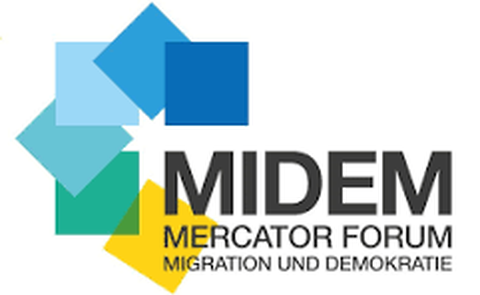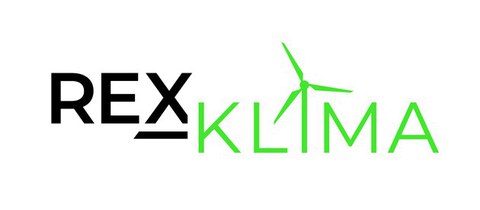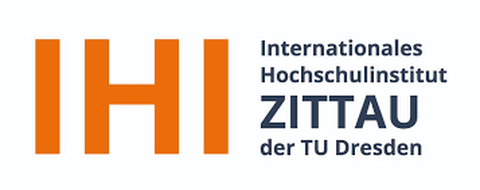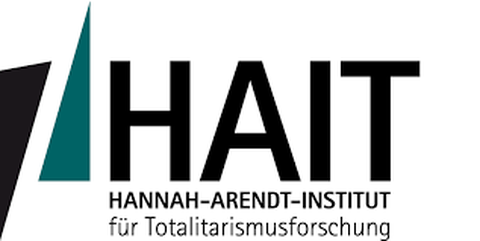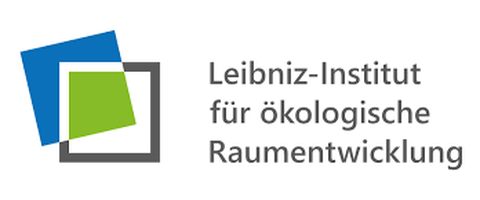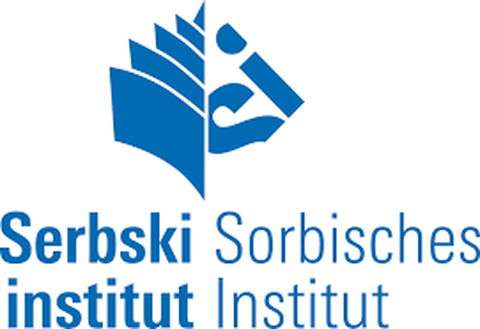Kooperationen und Netzwerk
Inhaltsverzeichnis
- DDc Scientific Area Committee IV „Kultur und gesellschaftlicher Wandel“ (SAC IV)
- JoDDiD
- TUDiSC
- KUSTODIE
- Schaufler Lab@TU Dresden
- CIDS
- MIDEM
- Forschungsgruppe REXKLIMA
- TUD|Campus Lausitz
- Internationales Hochschulinstitut Zittau der TU Dresden (IHI)
- Deutsche Zentraum für Astrophysik
- Hannah-Arendt-Institut für Totalitarismusforschung (HAIT)
- Hi!Lusatia
- Hochschule Zittau/Görlitz
- Institut für Transformation, Wohnen und soziale Raumentwicklung (TRAWOS)
- Institut für Sächsische Geschichte und Volkskunde (ISGV)
- Leibniz-Institut für ökologische Raumentwicklung (IÖR)
- Interdisziplinäres Zentrum für transformativen Stadtumbau (IZS)
- Serbski institut/Sorbisches Institut
- Kooperation mit dem Potenzialbereich Wasserforschung/Taming Water Extremes
- Kooperation mit dem Potenzialbereich Vernetzte und automatisierte Mobilität
DDc Scientific Area Committee IV „Kultur und gesellschaftlicher Wandel“ (SAC IV)
Das Scientific Area Committee IV „Kultur und gesellschaftlicher Wandel“ (SAC IV) ist eine Säule von DRESDEN-concept, einer Allianz von Forschungs- sowie Kultureinrichtungen im Raum Dresden: Wir verstehen uns als Plattform für Vernetzung und regelmäßigen Austausch mit dem Ziel, gemeinsamen Projektvorhaben eine arbeitsfähige Struktur und Grundlage zu bieten und damit auch die Sichtbarkeit unserer Einrichtungen zu erhöhen. Die Zusammenarbeit soll dabei helfen, gemeinsame Themenfelder zu identifizieren, Förder- und Finanzierungsmöglichkeiten zu erarbeiten und verbindende Planungsperspektiven zu erschließen. Aufgrund der besonderen Expertise eint uns ein gemeinsamer Bildungs- und Forschungsauftrag an der Schnittstelle zwischen Kultur, Wissenschaft und Gesellschaft, der gerade durch die gesellschaftlichen Herausforderungen der letzten Jahre und trotz der Pluralität der Einrichtungen als einheitlicher Rahmen Bestand hat. Dabei sehen wir uns stets offen für die Zusammenarbeit im gesamten Verbund von DRESDEN-concept.
JoDDiD
Die John-Dewey-Forschungsstelle für die Didaktik der Demokratie (kurz: JoDDiD) ist eine Einrichtung an der Professur für Didaktik der politischen Bildung. Sie wird von 10 Mitarbeiter:innen getragen, welche Expertisen aus ganz unterschiedlichen Bereichen mitbringen: Fachdidaktische Forschung, Beratung, Aus- und Weiterbildung, Kunst-, Museums- und Theaterpädagogik und natürlich politische und demokratische Bildung. Am Wichtigsten an der John-Dewey-Forschungsstelle ist uns: Wir wollen keine Forschung und Entwicklung im Elfenbeinturm betreiben. Es geht uns nicht um einen erhabenen Blick. Vielmehr ist es unser Anspruch, in partizipatorischen Prozessen gemeinsam mit den Aktiven im Feld der außerschulischen und non-formalen politischen Jugend- und Erwachsenenbildung nach Lösungen für Probleme zu fahnden, für die in den zumeist eng gesteckten Grenzen der Projektarbeit vor Ort zu wenig Zeit geblieben ist.
TUDiSC
Die Maßnahme Disruption and Societal Change (TUDiSC) ist Bestandteil des Vorhabens „Stärkung von Forschungsbereichen mit großem Potenzial“ im EXU-Schwerpunkt PROFIL an der TU Dresden. Sie soll dazu beitragen, wissenschaftliche Exzellenz und internationale Sichtbarkeit in allen fünf Forschungsprofillinien der TUD, hier insbesondere im Potenzialbereich „Gesellschaftlicher Wandel“, zu erreichen und damit die Universität in ihrer Gesamtheit gleichermaßen auf ein hohes Niveau hin zu entwickeln.
In gemeinsamer interdisziplinärer Arbeit geht es darum, Disruption als Basiskategorie der Erforschung gesellschaftlichen Wandels zu profilieren und in ihren Voraussetzungen, Logiken und Effekten grundlagenorientiert wie exemplarisch-gegenstandsbezogen genauer zu erfassen. Insofern damit die politischen, ökonomischen, sozialen und kulturellen Herausforderungen in den Fokus treten, mit denen sich Gesellschaften im Umgang mit Disruptionen konfrontiert sehen, hat TUDiSC eine sozial-, geistes- und kulturwissenschaftliche Orientierung, schließt aber die Expertise natur-, technik- und lebenswissenschaftlicher Problemfokussierung notwendigerweise mit ein.
Informationen zu den einzelnen Projekten sowie Ansprechpartner:innen finden sie auf der Seite der Maßnahme.
KUSTODIE
Die Kustodie der TU Dresden ist verantwortlich für den Erhalt von 40 Sammlungsbeständen aus dem naturwissenschaftlichen, technischen und künstlerischen Bereich. Mit einer Vielzahl an Aktivitäten bewahrt sie dieses wertvolle historisches Kulturgut und macht es zugänglich für Forschung und Öffentlichkeit. Mit ihrer Gründung 1979 ist die Kustodie der TU Dresden eine der ältesten Einrichtungen dieser Art in Deutschland. Im Rahmen ihrer übergeordneten, zentralen Stellung übt sie eine Aufsichtsfunktion über die Kulturdenkmale der Universität aus, darunter über 40 naturwissenschaftliche und technische Sammlungen sowie ein umfangreicher Kunstbesitz. Diese wichtige Ressource für sammlungsbezogene Forschung, Lehre und Wissenschaftskommunikation zu bewahren und gleichzeitig sichtbar und zugänglich zu machen, ist zentrale Aufgabe der Kustodie. In Zusammenarbeit haben wir mehrer Veranstaltungen realisiert, beispielsweise die Konferenz Performing Transformation – eine zweitägige Veranstaltung an der TU Dresden, die untersuchte, wie Wissen in Zeiten raschen gesellschaftlichen Wandels an den Schnittstellen von Kunst, Wissenschaft und Technologie produziert, verkörpert und herausgefordert wird.
Schaufler Lab@TU Dresden
Im gemeinsam von THE SCHAUFLER FOUNDATION und der TU Dresden initiierten Schaufler Lab@TU Dresden befassen sich Wissenschaftler:innen und Künstler:innen mit Wechselwirkungen zwischen Technik, Kunst, Wissenschaft und Unternehmertum. Das Lab besteht aus den zwei Säulen Schaufler Kolleg@TU Dresden und Schaufler Residency@TU Dresden. Gemeinsamer Untersuchungsgegenstand ist das Wechselspiel zwischen technischer Innovation und dem Wandel von Gesellschaft und Kultur. Die Perspektiven hierauf sind geistes- und sozialwissenschaftlich sowie künstlerisch.
Das Lab ist die Plattform und der Ort für transdisziplinäre Forschungskooperationen an der TU Dresden. Im Kolleg und in der Residency werden die Herausforderungen neuer Technologien und gesellschaftlicher Zukunftsfragen im Austausch künstlerischer und wissenschaftlicher Praxis verhandelt.
Gleichzeitig ist die nachvollziehbare Diskussion wissenschaftlicher Themen im Austausch mit einer breiten Öffentlichkeit zentrales Anliegen des Schaufler Lab@TU Dresden. Die geplanten experimentellen Formate der Partizipation spiegeln unser erweitertes Verständnis von Transfer und Vermittlung wider.
Die erste Projektphase befasst sich mit dem Thema „Künstliche Intelligenz (KI) als Faktor und Folge gesellschaftlichen und kulturellen Wandels“. Entsprechende Partner:innen der ersten Phase sind die Exzellenzcluster der TU Dresden. In der ersten Förderphase bestehen Kooperationen mit dem Center for Tactile Internet with Human-in-the-Loop (CETI), dem Center for Scalable Data Analytics and Artificial Intelligence Dresden/Leipzig (ScaDS.AI) sowie dem Center for Explainable and Efficient AI Technologies (CEE AI) – das gemeinsame KI-Forschungszentrum von TU Dresden und Fraunhofer Gesellschaft –, und weiteren.
CIDS
Die TU Dresden hat Digitalisierung als verbindendes Element mit Schnittstellen zu allen Forschungs- und Lehrbereichen als zentrale Aufgabe identifiziert. Als strategische Maßnahme wurde das Center for Interdisciplinary Digital Sciences (CIDS) im Juni 2021 gegründet. Mit dieser Gründung als holistischer und interdisziplinärer Hub für Digitalisierung, Data Analytics, HPC und KI ist die TU Dresden optimal im nationalen und internationalen Wettbewerb aufgestellt. Organisationen stehen heute vor der Aufgabe, ihre Strukturen, Prozesse und Produkte auf die innovativen Technologien der digitalen Transformation anzupassen, um die Vorteile dieser Möglichkeiten und Entwicklungen effizient auszuschöpfen. Für die Wissenschaft bieten die damit verbundene Fragestellungen neue Chancen, zukunftsweisende Lösungen zu erforschen und einen gesamtgesellschaftlichen Beitrag zu leisten. Mit aktuellen Trends wie Edge- und Cloud-Computing – in engster Verbindung zu Methoden im High Performance Computing (HPC), Big Data, Data Analytics (DA) und Künstliche Intelligenz (KI) – werden sich zukünftige Infrastrukturen selbstständig und hoch dynamisch auf wechselnde Umgebungen und Anforderungen anpassen und den jeweils optimalen Ort für die Ausführung von Programmcode und Speicherung von Daten auswählen müssen, ohne dabei die Datensouveränität der Nutzer einzuschränken.
MIDEM
Insbesondere in den vergangenen Jahren hat das Thema Migration in den Gesellschaften Europas zu neuen Polarisierungen geführt. Die politischen und sozialen Herausforderungen dieser Entwicklung sind noch nicht absehbar. Notwendig sind Untersuchungen, die den Zusammenhang zwischen Migration und Demokratie erforschen.
Das Mercator Forum für Migration und Demokratie (MIDEM) fragt danach, wie Migration demokratische Politiken, Institutionen und Kulturen prägt und zugleich von ihnen geprägt wird. Untersucht werden Formen, Instrumente und Prozesse politischer Verarbeitung von Migration in demokratischen Gesellschaften – in einzelnen Ländern und im vergleichenden Blick auf Europa. Zentrale Aspekte des Forschungsprojektes sind die Wahrnehmung von Migration durch demokratische Gesellschaften, die dadurch sichtbar werdenden gesellschaftlichen Bruchlinien sowie potentielle Bewältigungsstrategien.
MIDEM ist ein Projekt der Technischen Universität Dresden in Kooperation mit der Universität Duisburg-Essen, gefördert durch die Stiftung Mercator. Es wird von Prof. Dr. Hans Vorländer, TU Dresden, geleitet.
Weitere Informationen und aktuelle Veranstaltungshinweise finden Sie auf der Homepage des Projekts sowie dem MIDEM-Twitter-Account.
Forschungsgruppe REXKLIMA
Rechtspopulismus und Klimapolitik sind zwei der relevantesten zeitgenössischen politischen Phänomene, die in den Sozialwissenschaften jedoch meist getrennt behandelt werden. Die Forschungsgruppe REXKLIMA (Rechtsextremismus versus Klimaschutz? Nationalistische Opposition in einem transnationalen Politikfeld) verknüpft beide Themen. Sie wird von Dr. Manès Weisskircher geleitet und ist am Institut für Politikwissenschaft der TU Dresden und am Hannah-Arendt-Institut für Totalitarismusforschung angesiedelt. REXKLIMA wird als Nachwuchsgruppe vom BMBF über fünf Jahre (2023-2027) gefördert. Neben dem Gruppenleiter umfasst REXKLIMA eine Post-Doc-Stelle, drei Promovierenden-Stellen und ein GastwissenschaftlerInnen-Programm.
TUD|Campus Lausitz
Der Campus Lausitz ist die Antwort der TU Dresden auf die großen Herausforderungen des Strukturwandels in der Region. Denn der Wandel in der Lausitz bedeutet weit mehr, als den Ausstieg aus der Kohle zu gestalten: Er betrifft auch den demographischen Wandel, die Klimakrise, die Knappheit natürlicher Ressourcen und den zunehmenden Fachkräftemangel. Gemeinsam mit Partner:innen aus Wirtschaft, Gesellschaft und Politik möchte die TU Dresden diesen Wandel aktiv begleiten und die Lausitz zu einer modernen, nachhaltigen und zukunftsfähigen Region des 21. Jahrhunderts entwickeln. Der Campus Lausitz steht dabei für Innovation, Teilhabe und Verantwortung. Hier werden neue Strukturen geschaffen, die Digitalisierung und technologische Entwicklung mit sozialer und ökologischer Nachhaltigkeit verbinden. Ein besonderer Schwerpunkt liegt auf Demokratie und inklusiver Bildung: Der Campus versteht sich als offener Ort, an dem Wissen geteilt, Mitgestaltung gefördert und gesellschaftliche Vielfalt gelebt wird. Bildung wird hier inklusiv gedacht – als gemeinsames Projekt, das allen Menschen Zugang zu Forschung, Austausch und Zukunftschancen ermöglicht. So entsteht in der Lausitz ein Raum, in dem Wissenschaft, Wirtschaft und Zivilgesellschaft gemeinsam an einer nachhaltigen, demokratischen Zukunft arbeiten.
Internationales Hochschulinstitut Zittau der TU Dresden (IHI)
Das Internationale Hochschulinstitut Zittau wurde 1993 als Modell gemeinsamen, grenzüberschreitenden Lernens durch Partnerhochschulen in Sachsen, Polen und der Tschechischen Republik gegründet und ist seit 2013 Zentrale Wissenschaftliche Einrichtung der TU Dresden. Das IHI Zittau ist als Zentrale Wissenschaftliche Einrichtung der TU Dresden in seinem Charakter eine internationale, familiäre Graduiertenschule mit eigenen Masterstudiengängen. Intensive Kooperationen bestehen sowohl zu den TU-Fakultäten Umweltwissenschaften, Wirtschaftswissenschaften und Biologie als auch zu außeruniversitären Partnereinrichtungen wie Senckenberg und IÖR. Gemeinsam mit außeruniversitären Partnern und Partnerfakultäten innerhalb der TU Dresden forschen und lehren wir zu Themen wie ökosystemare Dienstleistungen, Nachhaltigkeit und das Management derselben.
Deutsche Zentraum für Astrophysik
Das Deutsche Zentrum für Astrophysik (DZA) versteht sich als wissenschaftliche Einrichtung mit regionaler Verantwortung. Mit der Abteilung Transformationsforschung leistet das DZA einen zentralen Beitrag zum Strukturwandel und zur nachhaltigen Entwicklung der Lausitz. Die Abteilung begleitet die Ansiedlung des Zentrums in der Region wissenschaftlich, erforscht Prozesse des gesellschaftlichen, technologischen und institutionellen Wandels und entwickelt Empfehlungen für eine zukunftsorientierte Struktur- und Wissenschaftspolitik. Dabei steht das Ziel im Mittelpunkt, den transformativen Wandel nicht nur zu analysieren, sondern aktiv mitzugestalten. Ein besonderer Fokus liegt darauf, wie Wissenschaft zu einer demokratischen, inklusiven und nachhaltigen Entwicklung beitragen kann. Transformationsforschung wird hier als gemeinsames Projekt verstanden – zwischen Forschung, Politik, Wirtschaft und Zivilgesellschaft. Die Abteilung arbeitet eng mit einem regionalen Partnernetzwerk zusammen, das das Konzept der Transformationsforschung im DZA von Beginn an mitgeprägt hat. Zu diesen Partnern gehören die Technische Universität Dresden (TUD), die Hochschule Zittau/Görlitz (HSZG), das Leibniz-Institut für ökologische Raumentwicklung (IÖR), das Institut für Sächsische Geschichte und Volkskunde (ISGV) sowie das Sorbische Institut (SI). Gemeinsam mit diesen Einrichtungen möchte das DZA die Lausitz als Modellregion für einen sozial gerechten, demokratisch gestalteten und wissenschaftlich fundierten Strukturwandel entwickeln.
Hannah-Arendt-Institut für Totalitarismusforschung (HAIT)
Nach der Wiedervereinigung Deutschlands und der Gründung des Freistaates Sachsen fasste der Sächsische Landtag den Beschluss zum Aufbau des Hannah-Arendt-Instituts für Totalitarismusforschung e. V. an der TU Dresden (HAIT). 1993 konnte es seine Arbeit aufnehmen. Das HAIT beschäftigt sich mit der systematischen Untersuchung des Nationalsozialismus und des Kommunismus sowie den Voraussetzungen und Folgen beider Herrschaftssysteme. Die Nachwirkungen der Diktaturen erfordern eine differenzierte Betrachtung im Rahmen einer internationalen Transformationsforschung, die zu den Schwerpunkten des Instituts zählt. Neben der Forschung bildet die Zusammenarbeit mit Einrichtungen der politischen Bildungsarbeit, Gedenk¬stätten und zivilgesellschaftlichen Gruppen im Freistaat Sachsen und in Deutschland einen Schwerpunkt der Institutsaktivitäten.
Hi!Lusatia
Hi!Lusatia ist ein gemeinsames Netzwerk aus Lehre, Forschung, Wirtschaft und Gesellschaft in der Lausitz, um die vorhandene Exzellenz in der Euroregion Neisse sichtbar zu machen und durch ein gemeinsames, koordiniertes Auftreten die Attraktivität des Standorts hervorzuheben. Der Verein strebt danach, die Zusammenarbeit zwischen Bildungseinrichtungen, Forschungsinstituten, Unternehmen und der Gesellschaft zu stärken und die Entwicklung der Region voranzutreiben. Der Name Hi!Lusatia setzt sich aus der englischsprachigen Begrüßungsformel „Hi!“ und dem lateinischen Wort für die Lausitz zusammen und macht deutlich, dass Fachkräfte in der Lausitz herzlich willkommen sind.
Hochschule Zittau/Görlitz
Die Hochschule Zittau/Görlitz gibt es seit 1992 in der Dreiländerregion Deutschland – Polen – Tschechien. Wie kaum eine andere Hochschule steht sie für Aufbruch und Wandel. Durch ihre Lage ist die HSZG Brücke zwischen Mittel- und Osteuropa. Das Thema Energie trägt sie seit der Gründung in ihren Genen. Und die Transformation von Wirtschaft, Arbeit und Gesellschaft ist in Deutschland kaum besser zu erforschen als in der Oberlausitz. Die Hochschule steht für international gut vernetzte und anwendungsorientierte Forschung.
Institut für Transformation, Wohnen und soziale Raumentwicklung (TRAWOS)
Das TRAWOS Institut forscht seit 2004 interdisziplinär und anwendungsorientiert zu Transformationsprozessen in der Gesellschaft mit einem Fokus auf die ländlich geprägte Ober- und Niederlausitz im Dreiländereck Deutschland, Polen und Tschechien. Forschungsschwerpunkte sind: der Wandel der ländlichen Gesellschaft und innovative Regionalentwicklung in der Lausitz mit Blick auf Demographie, Migration, Integration, Geschlecht und Governance-Strukturen sowie grenzüberschreitende Aspekte von Arbeit- und Lebenswelten, Bildung und Engagement.
Institut für Sächsische Geschichte und Volkskunde (ISGV)
Das Institut für Sächsische Geschichte und Volkskunde (ISGV) ist ein außeruniversitäres Forschungsinstitut, das die Disziplinen Landesgeschichte und Volkskunde/Kulturanthropologie vereint. Erforscht werden die Geschichte und Alltagskultur Sachsens in ihrer historischen Bedingtheit vom Mittelalter bis zur Gegenwart, überregional vergleichend und in transnationaler Perspektive. Zentrale Anliegen des Instituts sind die wissenschaftliche Dokumentation und Vermittlung seiner Forschungsergebnisse. Zu den Schwerpunkten zählen u.a. Mobilität, Transformationsforschung, Visuelle Anthropologie und Kulturerbe.
Leibniz-Institut für ökologische Raumentwicklung (IÖR)
Das Leibniz-Institut für ökologische Raumentwicklung (IÖR) ist eine außeruniversitäre Forschungseinrichtung und Mitglied der Leibniz-Gemeinschaft. Auf der Grundlage seiner Forschung berät das IÖR Politik und Gesellschaft mit Blick auf das Erreichen übergeordneter Nachhaltigkeits- und Umweltziele sowie von Zielen der räumlichen Entwicklung. Entsprechend engagiert sich das Institut in wissenschaftlichen Netzwerken und Verbünden und tritt über verschiedene Kanäle und Formate in einen regen und wechselseitigen Austausch mit zahlreichen Akteur*innen aus Politik, Planung und Zivilgesellschaft.
Interdisziplinäres Zentrum für transformativen Stadtumbau (IZS)
Das IZS ist eine gemeinsame Einrichtung des IÖR sowie des Internationalen Hochschulinstituts (IHI) Zittau der Technischen Universität Dresden. Weitere Partner sind die Stadt Görlitz mit der städtischen Wohnungsgesellschaft KommWohnen sowie die Deutsche Stiftung Denkmalschutz. Das Zentrum untersucht in einem transdisziplinären Ansatz die Chancen der Revitalisierung von Klein- und Mittelständen und beleuchtet städtische Transformationsprozesse in vom Strukturwandel betroffenen Regionen. Die Europastadt Görlitz/Zgorzelec dient hierbei als grenzübergreifendes Stadtlabor. Einen Schwerpunkt bei der internationalen Vernetzung des Zentrums stellt der mittel- und osteuropäische Raum dar.
Serbski institut/Sorbisches Institut
Das Sorbische Institut / Serbski institut mit Sitz in Bautzen und zwei Standorten in Cottbus erforscht die Sprache, Geschichte und Kultur der Sorben (Wenden) in der Ober- und der Niederlausitz in Vergangenheit und Gegenwart. Mit der doppelten Ausrichtung auf die sorabistisch-kulturwissenschaftliche Forschung und auf die praktische Unterstützung für sorbische Sprache und Kultur in der Ober- und Niederlausitz darf die Konzeption des Instituts als einzigartig gelten. Bekundet wird damit ein zeitgemäßes, auf den Dialog zwischen Wissenschaft und Gesellschaft gegründetes Selbstverständnis.
Kooperation mit dem Potenzialbereich Wasserforschung/Taming Water Extremes
In den vergangenen Jahren sind Wasserextreme als Auswirkungen des Klimawandels vielleicht erstmals richtig in das Bewusstsein der deutschen Öffentlichkeit gelangt. Zwei extrem trockene Sommer 2019 und 2020 führten zu Ernteausfällen in der Landwirtschaft, brachten Wälder und Stadtbäume an ihre Belastungsgrenzen und führten zu Wasserdefiziten in tieferen Bodenschichten und viel zu niedrigen Wasserständen in Flüssen und Reservoirs, welche die aquatischen Ökosysteme beeinträchtigten. 2021 führten schwere Regenfälle zu verheerenden fluvialen Überschwemmungen vor allem in Nordrhein-Westfalen und Rheinland-Pfalz, die viele Menschenleben forderten und Schäden in Höhe von fast 30 Milliarden Euro verursachten. Im Jahr 2021 manifestierte sich ebenfalls ein großflächiges Absterben der dürregeschwächten Wirtschaftswälder (vor allem Fichtenforste) in den deutschen Mittelgebirgen. Wasserextreme dieser Art werden nach allen seriösen Voraussagen in der Zukunft häufiger und ausgeprägter auftreten, mit unübersehbaren Auswirkungen auf den gesamten Wasserhaushalt, unsere Ökosysteme, unsere Land- und Forstwirtschaft, aber auch unsere politischen und sozialen Systeme. Es ist zum Beispiel nicht zu erwarten, dass ein Aufforsten mit dürresensiblen Baumarten, die den Großteil unserer Wirtschaftswälder ausmachen, unter den projizierten Bedingungen eine Zukunft haben kann. Hier stellt sich die drängende Frage an uns als Gesellschaft, wie wir uns an diese sich verändernden Bedingungen anpassen können. Wie können wir komplexe Wassersysteme so steuern, dass sichere Lebensbedingungen für uns und das dauerhafte Funktionieren von Ökosystemen gewährleistet werden können? Wie wirken sich wasserbezogene Infrastruktursysteme auf Prozesse des gesellschaftlichen Wandels und internationale Verteilungsfragen aus und die damit verbundenen politischen Konflikte? Um sich den veränderten Klimabedingungen der Zukunft anzupassen, benötigen wir smarte technische und technologische Lösungen, aber auch gesellschaftliche und wirtschaftliche Veränderungen.
In unterschiedlichen Formaten streben die Potenzialbereiche Gesellschaftlicher Wandel und Taming Water Extremes Vernetzung und Zusammenarbeit an. Die Grundlage bildete ein erster Workshop am 27.06.2022.
Kooperation mit dem Potenzialbereich Vernetzte und automatisierte Mobilität
Als im März 2021 das Containerschiff Evergreen im Suezkanal auf Grund lief, wurde exemplarisch deutlich, wie selbst kleinste Bereiche der heutigen Lebenswelt von globaler Mobilität abhängig sind. Die Unterbrechung der Mobilitätskette wirkte sich nicht nur auf Unternehmen, sondern auch das Alltagsleben aus. Mobilität und Verkehr sind von zentraler Bedeutung für das Funktionieren unserer arbeitsteiligen Gesellschaften. Sie sind Innovationstreiber, Grundvoraussetzung für Teilhabe am gesellschaftlichen Leben, stellen aber gleichzeitig die Gesellschaften vor große Herausforderungen, u. a. durch hohe Treibhausgasemissionen und den Verbrauch von Ressourcen. Mobilität ist zudem ein soziales Phänomen. Menschen wollen und müssen mobil sein. Mobilität ist mehr als nur Bewegung, sie ist Teil der persönlichen Entwicklung und heute eine Grundvoraussetzung für die Befriedigung menschlicher Bedürfnisse. Mobilität und Verkehr sind von Unterbrechungen und gesellschaftlichem Wandel betroffen, z. B. in der aktuellen COVID-19 Pandemie, sie brauchen gleichzeitig aber auch jenen Wandel, um ambitionierte Ziele z. B. im Klimaschutz zu erreichen. Daraus ergibt sich eine Vielzahl von Fragen, die aus interdisziplinärer und insbesondere geistes- und sozialwissenschaftlicher Sicht betrachtet werden müssen, um sie umfassend zu verstehen und Gestaltungsspielräume zu eröffnen.
In unterschiedlichen Formaten streben die Potenzialbereiche ‚Gesellschaftlicher Wandel‘ und Automatisierte und Vernetzte Mobilität Vernetzung und Zusammenarbeit an. Die Grundlage bildete ein erstes Netzwerkstudio am 05.11.2021.
Im Sommersemester 2022 wird die Zusammenarbeit in einer gemeinsamen Vortragsreihe im Kontext des Societal Change Forums fortgesetzt.





